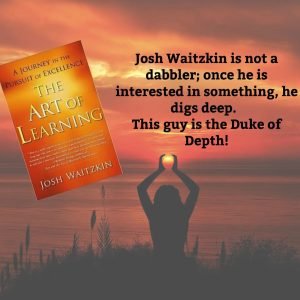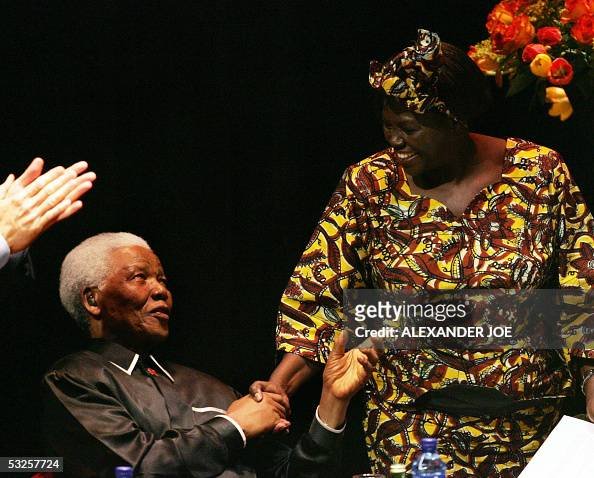Introduction
In a world full of remarkable individuals who leave a lasting legacy, what does it mean to be a “History Maker”? Let’s explore the qualities and actions that define these extraordinary individuals and how you can become one.
What is a History Maker?
A History Maker is someone who breaks boundaries, inspires others, and creates positive change. They are individuals who mark history through their actions, innovations, and contributions to society.
Qualities of a Story Maker
- Visionary thinking: History makers have a clear vision of what they want to achieve and the impact they want to make.
- Resilience and Perseverance: They face challenges with determination and recover from setbacks.
- Courage to Innovate: I am not afraid to think differently, take risks, and innovate.
- Empowering Others: Story Makers uplift and empower those around them, promoting collaboration and collective success.
How to Become a Story Creator
- Identify your passion: discover what moves and inspires you most.
- Set bold goals: Set ambitious but achievable goals that align with your passion and vision.
- Act consistently: Break your goals into actionable steps and commit to taking consistent action.
- Embrace failure as a learning opportunity: Learn from failures and use them as stepping stones to success.
- Seek Growth and Learning: Continuously develop your skills, knowledge, and mindset.
Here are some individuals who could be considered History Makers, along with what makes them stand out and what we can learn from their achievements:
1. Elon Musk
Why he’s a history maker: Elon Musk is known for his visionary leadership in sustainable energy (Tesla), space exploration (SpaceX) and transportation (Hyperloop). He revolutionized several sectors with his innovative ideas and determination to push boundaries.
What we can learn: From Elon Musk, we can learn the importance of bold vision, relentless pursuit of goals, and the courage to challenge conventional thinking. His story teaches us to embrace risk, think long-term, and never settle for the status quo.
2. Malala Yousafzai
Why she’s a history maker: Malala Yousafzai is a Pakistani activist for female education and the youngest Nobel Prize winner. Despite facing threats, she continues to advocate for girls’ education globally and inspires millions with her bravery.
What we can learn: Malala’s story teaches us the power of resilience, courage, and the importance of standing up for what you believe in. His dedication to education highlights the transformative impact of empowering individuals through knowledge.
3. Nelson Mandela
Nelson Mandela was a key figure in the fight against apartheid in South Africa and became the country’s first black president. His commitment to reconciliation and forgiveness left a lasting legacy of peace and unity.
What we can learn: Mandela’s life demonstrates the power of forgiveness, compassion, and the ability to bring people together despite profound differences. His leadership teaches us the value of perseverance and the pursuit of justice through peaceful means.
4. Marie Curie
Why she’s a history maker: Marie Curie was a pioneering physicist and chemist known for her groundbreaking research into radioactivity. She was the first woman to win a Nobel Prize and the only person to win Nobel Prizes in two different scientific fields.
What we can learn: Marie Curie’s dedication to scientific discovery exemplifies the importance of curiosity, persistence, and intellectual courage. Her achievements inspire us to break barriers and seek knowledge without fear.
5. Steve Jobs
Why he’s a history maker: Steve Jobs co-founded Apple and played a key role in revolutionizing the technology industry with innovations like the iPhone and Macintosh. Its emphasis on design, user experience, and innovation has transformed multiple industries.
What we can learn: Steve Jobs’ legacy highlights the importance of passion, creativity, and attention to detail in product development. Your entrepreneurial spirit encourages us to think differently and seek excellence in our endeavors.
6. Rosa Parques
Why she’s a history maker: Rosa Parks was a civil rights activist known for her pivotal role in the Montgomery bus boycott. By refusing to give up her seat to a white passenger, she sparked a movement that challenged racial segregation in the United States.
What we can learn: Rosa Parks’ courage and determination exemplify the power of peaceful resistance and civil disobedience in the pursuit of justice and equality.
7. Mahatma Gandhi
Why he is a history maker: Mahatma Gandhi led India’s nonviolent struggle for independence from British rule. His philosophy of Satyagraha (force of truth) inspired movements for civil rights and freedom around the world.
What we can learn: Gandhi’s commitment to nonviolence, social justice, and equality teaches us the transformative potential of peaceful activism and the importance of moral integrity.
8. Marie Curie
Why she’s a history maker: Marie Curie was a pioneering physicist and chemist known for her research into radioactivity. She was the first woman to win a Nobel Prize and remains an icon of scientific discovery.
What we can learn: Marie Curie’s dedication to scientific inquiry, intellectual curiosity, and perseverance in the face of challenges serve as inspiration for aspiring scientists and education advocates.
9. Martin Luther King Jr.
Why he’s a history maker: Martin Luther King Jr. was a prominent leader of the American civil rights movement. His advocacy for nonviolent resistance and racial equality continues to inspire generations around the world.
What we can learn: MLK’s commitment to justice, equality, and solidarity teaches us the importance of empathy, inclusion, and the pursuit of collective progress.
10. Ana Franca
Why she’s a history maker: Anne Frank, through her diary, documented her experiences hiding from the Nazis during World War II. Her story sheds light on the resilience of the human spirit in the face of adversity.
What we can learn: Anne Frank’s courage, optimism, and unwavering hope in the goodness of humanity serve as a reminder of the lasting power of resilience and the importance of compassion.
11. Cesar Chavez
Why he’s a history maker: Cesar Chavez was a labor leader and civil rights activist who co-founded the United Farm Workers union. He fought for the rights of farm workers and inspired movements for social justice.
What we can learn: Cesar Chávez’s commitment to grassroots organizing, solidarity, and advocacy for marginalized communities inspires us to defend the rights and dignity of workers.
12. Wangari Maathai
Why she’s a history maker: Wangari Maathai was an environmental activist and founder of the Green Belt Movement in Kenya. She promoted conservation, women’s rights, and sustainable development.
What we can learn: Wangari Maathai’s dedication to environmental stewardship, community empowerment, and gender equality highlights the interconnectedness of social and ecological well-being.
These individuals represent diverse backgrounds and fields of endeavor, each leaving a profound impact on history through their actions, ideas, and values. Studying their lives and legacies can offer valuable insights and inspiration for personal growth, activism, and positive change.
Master Your Skills: The Art of Learning Review
Are you ready to unlock the secrets to optimal performance and mastery? Dive into “The Art of Learning: An Inner Journey to Optimal Performance” by Josh Waitzkin, a captivating guide that unveils the profound strategies for achieving excellence in any pursuit.
In this review of “The Art of Learning,” we’ll explore why this book is a must-have for anyone striving to enhance their skills and reach new heights in personal and professional growth.
Key Themes and Insights
Josh Waitzkin, a chess prodigy and martial arts champion, shares his transformative journey from competitive arenas to discovering the essence of learning and peak performance. The book delves deep into principles that transcend disciplines, making it relevant for athletes, artists, entrepreneurs, and learners alike.
Waitzkin emphasizes the importance of mindfulness, adaptability, and resilience in the face of challenges. His experiences underscore the idea that true mastery isn’t just about skill acquisition but about cultivating a mindset that embraces continuous improvement.
Practical Strategies for Success
“The Art of Learning” provides actionable strategies to implement immediately. From developing a growth-oriented mindset to honing your ability to learn from setbacks, Waitzkin’s insights are both enlightening and empowering.
Why You Should Read This Book
Unique Perspective: Waitzkin’s dual expertise in chess and martial arts offers a fresh, holistic approach to mastery.
Inspiring Narratives: Engaging anecdotes bring theoretical concepts to life, making them relatable and impactful.
Practical Applications: Each chapter offers practical exercises and principles that can be directly applied to your own journey of learning and growth.
Optimal Performance
Mastery
Mindfulness in Learning
Peak Performance Strategies
Continuous Improvement
Adaptability
Growth Mindset
Final Thoughts
“The Art of Learning” is not just a book; it’s a roadmap to excellence. Whether you’re a student, an entrepreneur, an athlete, or simply someone eager to enhance your skills, Josh Waitzkin’s insights will leave an indelible mark on your approach to learning and performance.
Are you ready to embark on your inner journey to mastery? Grab a copy of “The Art of Learning” on Amazon today and start unlocking your full potential.
Remember, true mastery is not about reaching a destination but embracing the continuous pursuit of growth. Let “The Art of Learning” be your guide.
History Maker Categories
- Innovators and Inventors
- Agents of Social Change
- Creative Visionaries
- Business Leaders
Let’s expand on each category of History Makers listed above, providing more context and examples of individuals who embody these qualities:
1. Innovators and Inventors
Definition: Innovators and inventors are individuals who pioneer new ideas, technologies, or solutions that revolutionize industries and change the way we live.
Examples:
- Thomas Edison: Invented the phonograph, the movie camera and the practical electric light bulb, transforming the world with his innovations.
- Alexander Graham Bell: Inventor of the telephone, which revolutionized communication and laid the foundations for modern telecommunications.
- Tim Berners-Lee: Credited with inventing the World Wide Web, enabling global connectivity, and reshaping the way we access information.
Key Lessons: Innovators inspire us to think creatively, embrace experimentation, and persist in pursuing innovative ideas that have the potential to impact society.
2. Agents of Social Change
Definition: Social change agents are activists and advocates who work to address social issues, promote equality, and advance human rights.
Examples:
- Nelson Mandela: He fought against apartheid in South Africa and defended reconciliation and unity.
- Susan B. Anthony: Key figure in the women’s suffrage movement in the United States, campaigning for women’s right to vote.
- Martin Luther King Jr.: Leader of the American civil rights movement, advocating nonviolent resistance and racial equality.
Key takeaways: Agents of social change inspire us to advocate for justice, challenge systemic inequalities, and drive movements for positive social transformation through peaceful means.
3. Creative Visionaries
Definition: Creative visionaries are artists, writers, musicians, and filmmakers who inspire and influence culture through their creativity and imagination.
Examples:
- Leonardo da Vinci: renowned Renaissance polymath known for his paintings, inventions, and scientific contributions.
- Frida Kahlo: Mexican painter celebrated for her powerful self-portraits and representation of Mexican culture and identity.
- Steven Spielberg: Iconic filmmaker known for directing hit films that defined the modern film industry.
Key Lessons: Creative visionaries teach us to express ourselves authentically, explore diverse perspectives, and use art as a vehicle for communication and change.
4. Business Leaders
Definition: Business leaders are entrepreneurs and executives who drive innovation, create jobs, and shape economies through their companies.
Examples:
- Steve Jobs: Co-founder of Apple Inc., known for revolutionizing technology and consumer design.
- Oprah Winfrey: media mogul and philanthropist who built a multimedia empire and became a cultural icon.
- Jeff Bezos: Founder of Amazon, transforming e-commerce and pioneering cloud computing and logistics.
Key Takeaways: Business leaders inspire us to think big, take calculated risks, and prioritize customer satisfaction and innovation in business endeavors.
Each category of History Makers represents individuals who have made significant contributions to society and exemplify qualities of leadership, innovation, resilience, and social impact. Studying their lives and achievements can provide valuable insights and inspiration for personal and professional growth.





